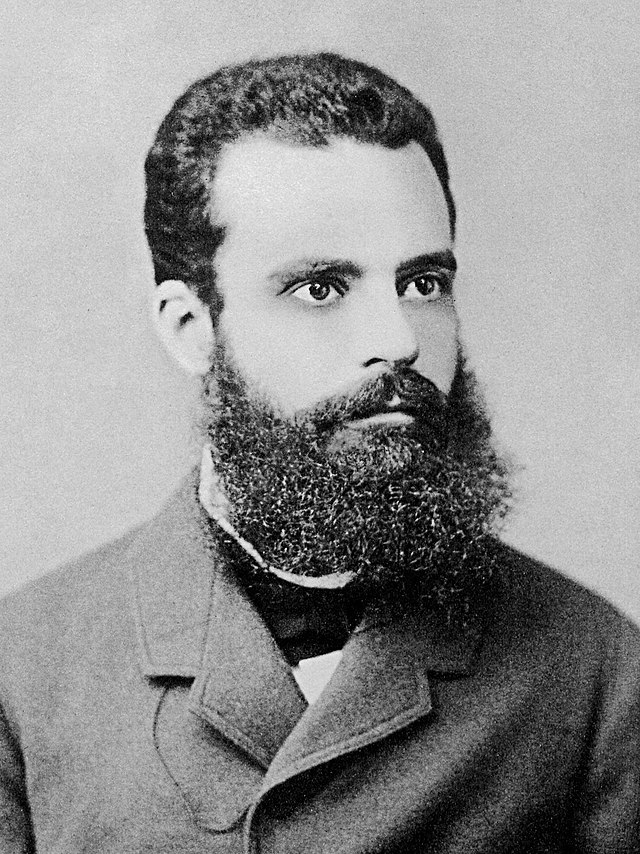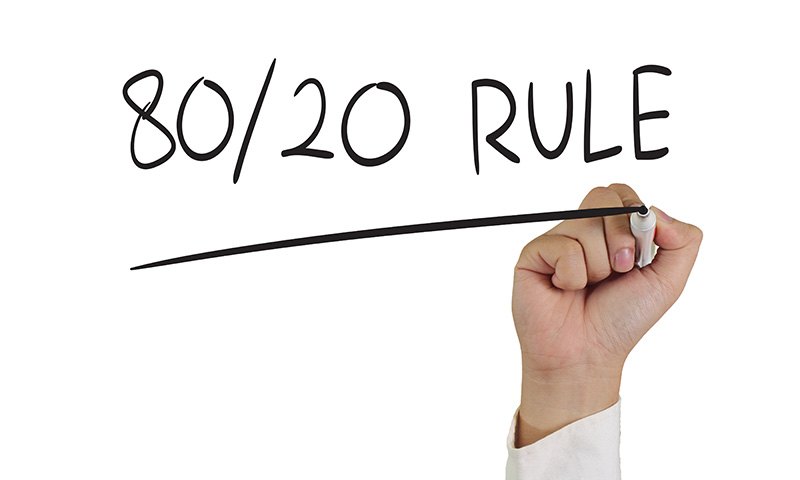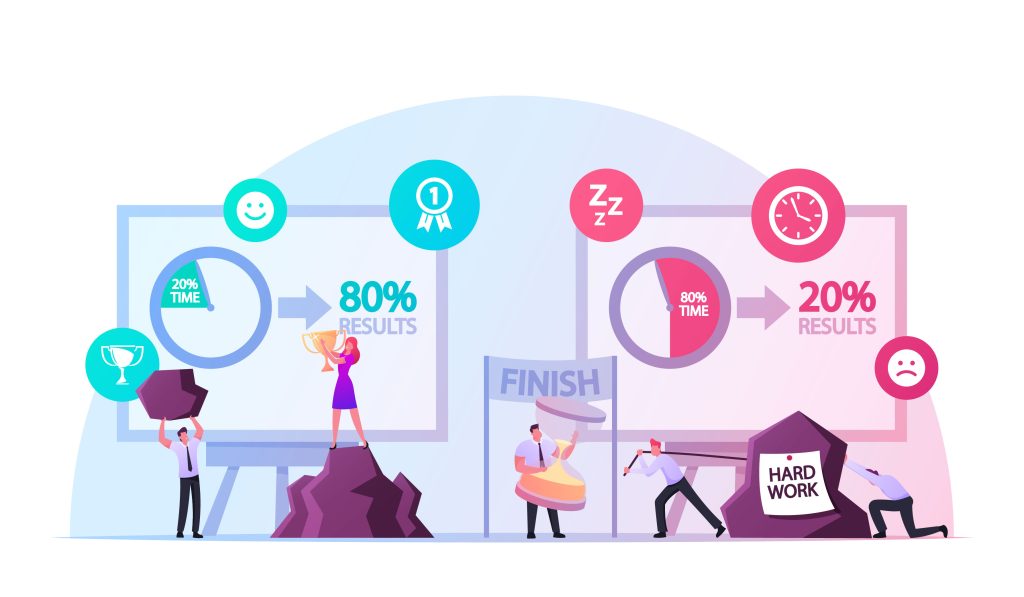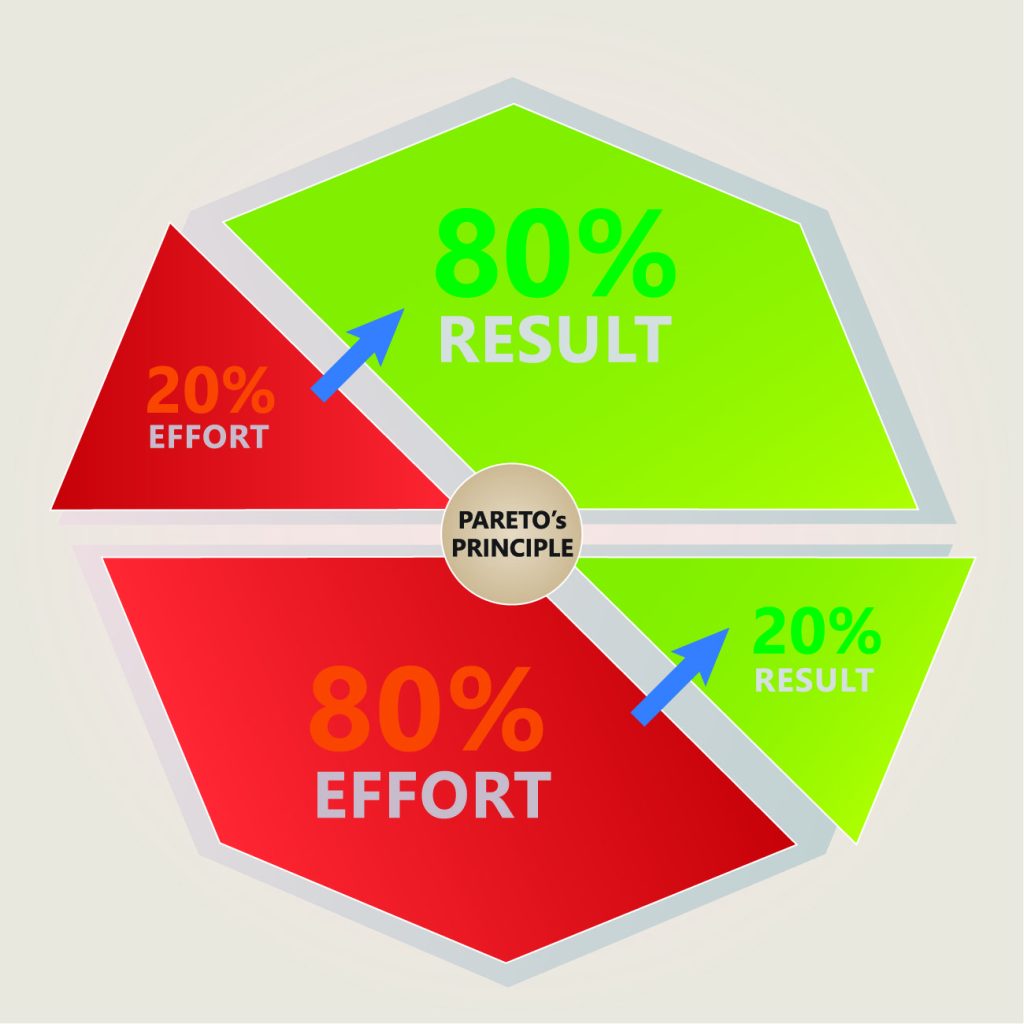But who is this PARETO? This is what we are going to discover through this article.
Read to the end to find out how this ratio will change your life by making you the most effective with the least amount of effort, interesting no!

Vilfredo PARETO is an Italian sociologist and economist of the 19th century, who has contributed enormously in these two fields. He produced a large body of work on economic statistics and it was he who first introduced the concept of efficiency in economics.
PARETO published a work entitled “Manual of Political Economy” in which he described an empirical observation made on the distribution of wealth in Italy, in which he explained that 20% of the population owned 80% of the wealth.
Pareto principle
PARETO creates a diagram that shows the relationship between the proportion of causes and their effects. This graph is then used as a technique to prioritize the actions that will have the most effective impact on the subject at hand and thus identify the distribution of things according to the 20/80 logic, which means “20% of the causes lead to 80% of the effects”.
Hence the famous law that bears his name “PARETO’s Law” also known as the law of least effort or the 20/80 principle.
This 20/80 relationship has become universal and has been supported by the findings of researchers in various fields, which has made its success and its use in many areas.

How to become efficient on a daily basis thanks to the 20/80?
The application of PARETO’s law in everyday life consists in saying that, in many fields, whether in the business world or in general life, 80% of effects are caused by 20% of causes.
In the business world :
This empirical phenomenon is found in activities such as sales, logistics, project management, customer service and others.

- In sales: 20% of customers represent 80% of sales
The challenge in this case is for the company to identify potential customers who will allow it to achieve significant sales figures and multiply its earnings. It is the company’s duty to present them with certain services or particular advantages in order to keep them loyal, given the minimal proportion that they represent in relation to the profits they generate.
- In logistics: 20% of inventory represents 80% of the value
In this case, the materials reserved by the company in its warehouse, must be efficient and of good quality, which results in better and satisfactory productivity.
- In project management: 20% of the Efforts allow to solve 80% of the Problems
The goal here is to devote your energy to the 20% that are responsible for the consequences, so that in case of unforeseen events or lack of time you will have made much more progress and will have already solved 80% of your work than if you had treated each task separately and with the same energy.
- Customer service: 20% of production defects generate 80% of complaints
To preserve the good reputation, the company must monitor and maintain a better production quality to satisfy its customers. Otherwise, if only 20% of the products have production defects, it can lead to up to 80% of complaints and cause considerable losses to the company.

In everyday life :
In order to succeed in reaching the set objectives, the principle of PARETO pushes us to reflect on the factors, which have the most impact, positive or negative, in the achievement of these objectives. To do this, we need to look around us where Pareto’s law applies? Because it is not systematic.
Once we have identified in which area the law of PARETO applies, it is recommended to define exactly the 20% of the priorities or tasks that lead us to the 80% of the desired results. In this way, we will have a clear vision of where we should put our energy first, so that we guarantee a certain and satisfying progress in our life.
This means that, “Thinking PARETO means capitalizing on our strengths, focusing on the essential and eliminating the superfluous”.
Also, one of the main areas where we can all apply the PARETO principle is time management. We all have times when we are most productive, either in the morning or in the evening, and times when we are hyperactive and others when we don’t feel like doing anything, so we must use these moments to accomplish our most intense tasks.


Therefore, it is found that the law of PARETO is not applicable by perfectionists, who consider that everything must be executed with the same care and energy.
It is very difficult for them to distribute their energy differently, therefore, they sometimes find themselves obliged to postpone their project or to abandon it altogether because an essential component is missing to move forward efficiently which is “time management”.
In the end, thinking PARETO as frequently as possible, without completely overturning or revolutionizing our ways of doing things, will have the advantage of creating a habit and as we go along we should almost automatically identify what will have the most impact, good or bad, on the success of our objectives.
In conclusion
The law of PARETO should be part of our life to consider it as a tool to be used intelligently because it allows us to better manage our time, our energy and consequently to be effective in the realization of our projects and the achievement of our objectives.